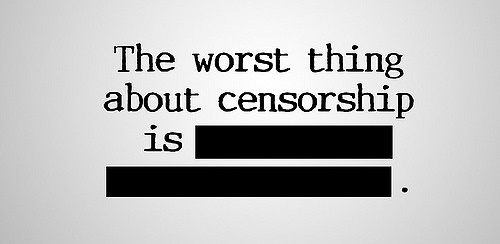(ANTIMEDIA) Few would deny the profound changes social networking has made to society and interpersonal relationships — for better or worse. By now, most people with a Facebook account know how overwhelming the platform can be, and even sarcastic memes have insinuated that people’s lives may not be quite as wonderful as they make them out to be on the social networking site.
As social media has become an increasingly important part of human interaction, research into the phenomenon has continued to develop, and much of it is uncovering a consistent theme. Time and time again, studies have shown heavy use of Facebook and other social networking sites might be responsible for more than just provoking minor irritation — and can be a contributing factor in more serious mental health issues.
The most recent study by the University of Pittsburgh School of Medicine published in the Depression and Anxiety journal last month found the more time young adults spend on social media, the more likely they are to be depressed. To examine the effects of social media on the moods of users, 1,787 adults between 19 and 32 were given questionnaires relating to their use of the 11 most popular platforms: Facebook, YouTube, Twitter, Google Plus, Instagram, Snapchat, Reddit, Tumblr, Pinterest, Vine, and LinkedIn.
On average, the study participants used social media for a total of 61 minutes per day and visited a number of social media accounts 30 times per week. Alarmingly, over a quarter of them were classified as having “high indicators” of depression. Significant associations were noted between their social media use and depression, whether it was measured in terms of total time spent or frequency of visits.
Those who most frequently checked social media throughout the week were 2.7 times more likely to be depressed than peers who spent less time using the platforms. Additionally, those who spent the most time on social media during the day had 1.7 times the risk of depression than those who spent less time.
Researcher Lui yi Lin, B.A., said it may be that people who are already depressed turn to social media to fill a void, but also acknowledged exposure to social media may cause depression, which could then fuel more use.
Facebook — dystopian not utopian
Lin’s analysis builds on the findings of a 2014 study by the University of Houston that specifically focused on Facebook and uncovered why heavy use can lead to depressive symptoms. The study entitled, “Seeing Everyone Else’s Highlight Reels: How Facebook Usage is Linked to Depression,” concluded excessive social comparison to peers negatively impacts the psychological health of users.
Facebook has over 1.65 billion monthly active users worldwide, and 1.09 billion users log on daily. In the U.S. alone, users devote a staggering 19% of their internet browsing to Facebook-related activities. After logging in to the site, they are bombarded with a barrage of information, including status updates, strong opinions, harrowing news, pictures of other people’s romances, babies, or travels.
“Prior research has tied Facebook use to positive effects such as fulfillment of ego needs, greater subjective well-being, and higher relationship quality for those in a romantic relationship. However, for some individuals the results of such cyber exchanges may be more dystopian than utopian,” the study reads.
Comparisons
The University of Houston used a 14-day diary method to examine the extent to which spending time on Facebook encouraged individuals to compare their lives to the lives of others. Individuals were questioned on their usage and how likely they were to make social comparisons. Interestingly, the link between the amount of time spent on Facebook and depressive symptoms was mediated by what researchers referred to as “upwards, nondirectional (neutral) and downwards social comparisons.”
The upwards comparisons, like looking up to someone perceived as more popular or attractive, tended to make people feel worse. In contrast, downward comparisons, like comparing oneself to someone with lower grades, for example, made people feel better about themselves.
Chicken or egg?
Consequently, it seems it is a chicken and egg argument as to whether exposure to social media causes depression or if depression fuels usage. Regardless of what came first, the link between social media usage and depressive symptoms is being proven time and time again, and there are a number of factors that create the connection.
The studies find that along with comparisons — which elicit feelings of envy and the distorted belief that others lead happier, more successful lives — engaging in activities of little meaning on social media may give users a feeling of “time wasted,” which can therefore negatively influence mood. Additionally, as the University of Pittsburgh researchers noted, excessive social media use can fuel “internet addiction and spending more time on social networking sites increases the risk of exposure to cyber-bullying or other similar negative interactions — which can also cause feelings of depression.”
This article (Are You Feeling Depressed? Facebook May Be to Blame) is free and open source. You have permission to republish this article under a Creative Commons license with attribution to Michaela Whitton and theAntiMedia.org. Anti-Media Radio airs weeknights at 11pm Eastern/8pm Pacific. If you spot a typo, email edits@theantimedia.org.
